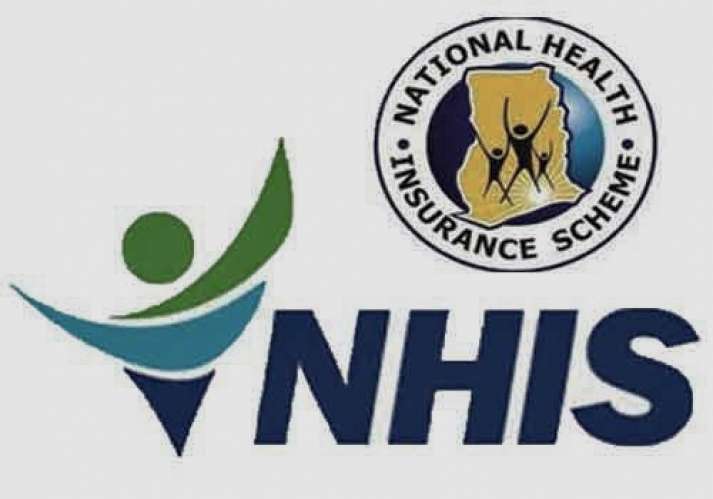The National Health Insurance Authority (NHIS) says claims by the Minority in Parliament that the Scheme is on the verge of collapse is wrong.
According to the Authority, the operations of the Scheme during the era of the National Democratic Congress and the current administration are different.
In a statement by the NHIS to clarify the allegations by the NDC Minority in Parliament, the Authority pointed out the issue of COVID-19 reduced the number of Ghanaians seeking healthcare with its associated loss of revenue to the Scheme.
“NHIA’s Investment cover for claims however has been declining since 2009. For the year 2014, the NHIA Investment Fund had a closing balance of GH104.32 million which declined to GH77 million as of the end of 2016 with disinvestments of GH39.82 million in that same year.
“Investment cover as of the end of December 2021, stood at GH100.72 million. It is instructive to note that there have been no disinvestments since 2017 till date. This cover equates to 1.06 months of claims should the Scheme rely solely on its investments,” the Head of Corporate Affairs Directorate, NHIA, Richard Barima Sarpong disclosed.
He continued: “It is evident that 2020 was an extraordinary year during which the Covid 19 Virus was rife and resulted in low hospital attendance for several people who ordinarily would have visited the hospital for routine medical checkups. 2020 also witnessed zero cases of cholera, for instance, thereby naturally reducing hospital attendance. Considering this, comparing 2014 hospital utilization to 2020 would be a mismatch. Ironically, a reduction in hospital utilization could also signify an enhanced healthcare delivery system where fewer people are falling ill or requiring medical attention.”
Background
The Minority in Parliament has accused government of collapsing the National Health Insurance Scheme (NHIS).
According to the Minority, the accusations are based on government’s failure to release funds to the NHIA which has resulted in the scheme’s inability to pay service providers, a development they argue has seen the return of the cash and carry system.
Addressing the media in Parliament Tuesday, Minority spokesperson for Health, Kwabena Mintah Akandoh, disclosed government only released 6% of total amounts collected to the authority in 2021.
The Juaboso MP has consequently charged the Finance Minister to stop the diversion of NHIS funds which he says is in clear violation of the Act establishing the scheme.
“A study of the National Health Insurance Fund Allocation Formula for 2022 shows that of the GHc2.056billion collected from Ghanaians as NHIL in 2021, only GHc127.47million or 6% of the total collected was released by this government to address obligations of the year.
“It is thus not surprising that providers of services under the scheme (hospitals, pharmacies, laboratories etc.) are often outraged claiming arrears in reimbursement,” he disclosed.
He continued: “This is however not unique to 2021. In 2020 out of the GHc2.337billion Ghanaians paid as NHIL and SSNIT contributions for the fund, only GHS790.29m or 31% was released to address claims for the year (2020). 2019 figures were GHS721.09m out of GHS1,262.92 or 57%. 2018 figures were GHS506.80 out of 1,579.49m or 32%. We will want to emphasize that since Nana Akufo-Addo took over as President an average of 41.2% of collections due to the NHIS has been released compared to 73.25% under President Mahama.”
Below is the full statement from the NHIA
NHIA clarifies issues raised by the Ranking Member on the Parliamentary Select Committee on Health
On May 10, 2022, the Ranking Member on the Parliamentary Select Committee on Health, Hon. Kwabena Mintah Akandoh in a press conference raised several issues in respect of the National Health Insurance Fund (NHIF) and the sustainability of the National Health Insurance Scheme (NHIS). The Management of the National Health Insurance Authority (NHIA) would like to clarify as follows:
Collections of the National Health Insurance Levies (NHIL) into the Consolidated Fund occur over a period and therefore releases into the NHIF may delay sometimes. In the Allocation Formula approved by the Parliament of Ghana on April 5, 2022, an amount of GH1, 393.14 million was duly referenced as the total amount released by the Ministry of Finance into the NHIF within the year 2021.
- However, after the application of standard accounting reporting principles by the NHIA, an amount of GH1, 266.14 million was treated as payment for liabilities of the government to the NHIA. This left an amount of GH127 million which in the standard accounting reporting framework was attributed to the 2021 financial year.
- NHIA’s Investment cover for claims however has been declining since 2009. For the year 2014, the NHIA Investment Fund had a closing balance of GH104.32 million which declined to GH77 million as of the end of 2016 with disinvestments of GH39.82 million in that same year. Investment cover as of the end of December 2021, stood at GH100.72 million. It is instructive to note that there have been no disinvestments since 2017 till date. This cover equates to 1.06 months of claims should the Scheme rely solely on its investments.
- By the NHIA’s claims payment arrangement, the Scheme will always be in arrears to its Service Providers. By an agreement, providers have 60 days to submit their claims whilst the NHIA has 90 days to vet, process, and pay. Based on this, an accurate arrears position will be difficult to be determined at any point in time as this will depend on when claims are submitted to the NHIA. For example, between 25 – 30% of healthcare providers have submitted their October to December 2021 (last quarter) claims as of March 2022. It will be quite erroneous to state emphatically that the NHIA owes GH2.5 billion to providers for claims submitted to March 2022.
- Despite some challenges, the NHIA’s active membership is at an all-time high of 16.75 million members amounting to approximately 54% of Ghana’s population at the end of 2021.
In recognizing the current inflationary trends especially affecting medicines, the NHIA has completed a thorough stakeholder engagement that reviewed its service tariffs and is awaiting approval by the Minister of Health before publication.
It is evident that 2020 was an extraordinary year during which the Covid 19 Virus was rife and resulted in low hospital attendance for several people who ordinarily would have visited the hospital for routine medical checkups. 2020 also witnessed zero cases of cholera, for instance, thereby naturally reducing hospital attendance. Considering this, comparing 2014 hospital utilization to 2020 would be a mismatch. Ironically, a reduction in hospital utilization could also signify an enhanced healthcare delivery system where fewer people are falling ill or requiring medical attention.
Recent Ministry of Health (MOH) indicators however suggest that life expectancy in Ghana is improving year on year and is currently 64.42 years as of the end of 2021. The mortality rate is 7.153 signifying a growth rate of -0.900% from 2020.
In relation to Biometric ID card procurement, the NHIA has significantly reduced the number of cards purchased since the merger of the NHIS cards with the Ghana cards resulting in substantial savings.
Prior to the merger, on average, the number of ID cards purchased annually was around 4.3 million. For the 2022 Allocation formula, the NHIA made provision to procure only 2.6 million Biometric ID cards to provide uninterrupted access to healthcare for persons who do not possess the Ghana card especially children under 16 years and below.
The NHIA is open to discussions with all stakeholders to improve the sustainability of the Scheme and wishes to re-assure the public that Management is working continuously to achieve this and to meet our targets of Universal Health Coverage for all by 2030.
Signed:
Corporate Affairs Directorate, NHIA
Contact: Richard Barima Sarpong,
Communications Manager, (0244786489)
Date: 11/ 05 / 2022
Source: Ghana/Starrfm.com.gh/103.5FM/Isaac Dzidzoamenu




